Have you ever heard of Kotoshironushi-no-Kami? This deity from Japanese mythology holds a significant place in both Shinto beliefs and Japanese culture. Often associated with prosperity, good fortune, and bountiful catches, Kotoshironushi-no-Kami is closely linked to Ebisu, one of the Seven Lucky Gods (Shichifukujin). In this article, we’ll explore the origins, characteristics, and unique role of Kotoshironushi-no-Kami, as well as the connection to Toka Ebisu festivals and the deity’s main shrine.
Who Is Kotoshironushi-no-Kami?
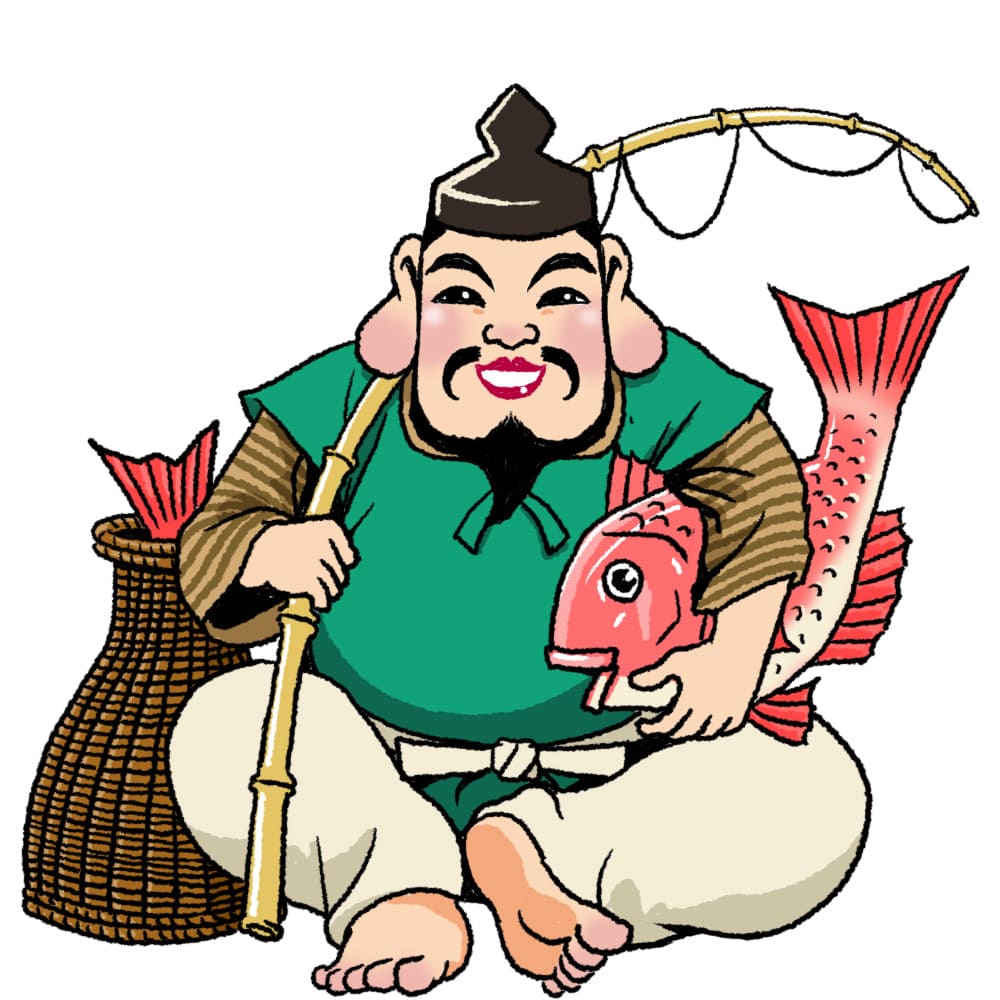
Kotoshironushi-no-Kami is a deity deeply rooted in Japan’s ancient myths. According to the Kojiki (Records of Ancient Matters) , Kotoshironushi-no-Kami is the son of Okuninushi-no-Kami, the ruler of the land of Izumo. He is often depicted as a god of fishing and commerce, symbolizing abundance and prosperity.
One famous tale tells of the “Kuniyuzuri” (Transfer of the Land), where Kotoshironushi-no-Kami was found fishing. During this event, he willingly relinquished control of Izumo to the heavenly deities, showcasing his cooperative and harmonious nature.
If you are interested in Japan’s ancient myths, please check the article below.
Connection to Ebisu
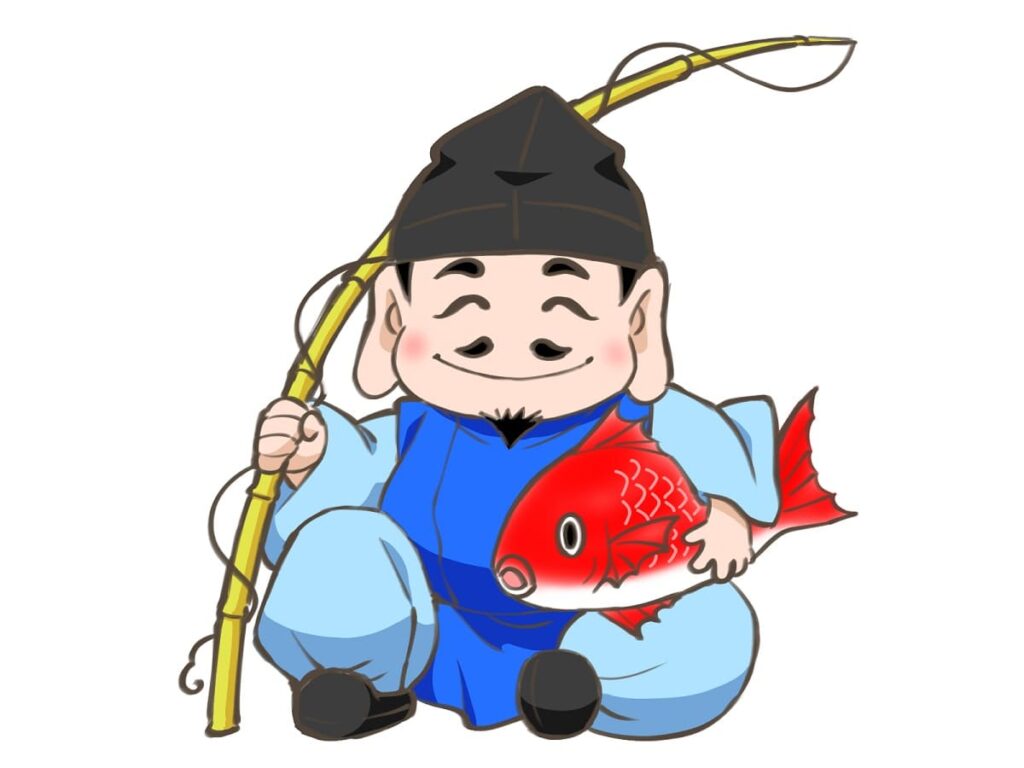
Kotoshironushi-no-Kami is widely believed to be synonymous with Ebisu, the smiling god of prosperity and one of the Seven Lucky Gods in Japanese folklore. While Kotoshironushi’s role as a fishing deity emphasizes his connection to the sea and harvests, Ebisu’s broader role as a deity of commerce and good fortune has made him a beloved figure among merchants and fishermen alike.
Ebisu’s cheerful demeanor and association with prosperity have made him a central figure in many Japanese traditions, particularly those celebrating economic success and bountiful harvests.

If you are interested in other lucky gods,
check the article below.
What Is Toka Ebisu?
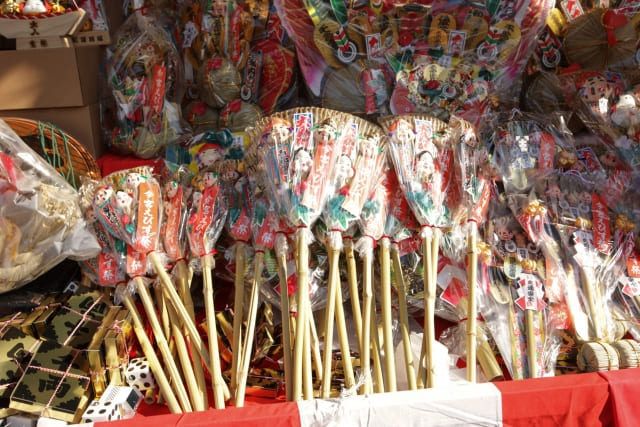
Toka Ebisu is a popular festival held annually from January 9th to 11th at Ebisu shrines across Japan. The festival celebrates Ebisu’s role as a deity of wealth and prosperity, attracting thousands of visitors who come to pray for success in business and personal endeavors.

We always go to the nearest Kotoshironushi jinja for Toka Ebisu.
During Toka Ebisu, bamboo branches adorned with lucky charms such as “Kumade” (decorative rakes) are sold to worshippers. These charms symbolize the “raking in” of good fortune. The lively festival atmosphere includes traditional music, food stalls, and rituals dedicated to Ebisu.
Although Toka Ebisu focuses on Ebisu, it is also an opportunity to honor Kotoshironushi-no-Kami, emphasizing the strong connection between these two deities.
If you want to know more about Toka Ebisu, please read the article below.
The Main Shrine of Kotoshironushi-no-Kami
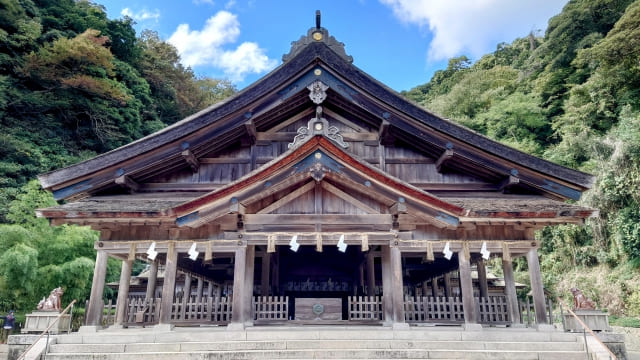
The primary shrine dedicated to Kotoshironushi-no-Kami is Miho Shrine, located in Mihonoseki, Shimane Prefecture. This historic shrine is situated near the sea, reflecting Kotoshironushi’s role as a god of fishing and maritime safety. Visitors to Miho Shrine can admire its beautiful architecture and learn more about the deity’s significance in Japanese culture.
Miho Shrine is part of the Izumo Taisha network, underscoring its importance in Shinto beliefs and its connection to the larger Izumo mythology.
Why Is Kotoshironushi-no-Kami Important Today?
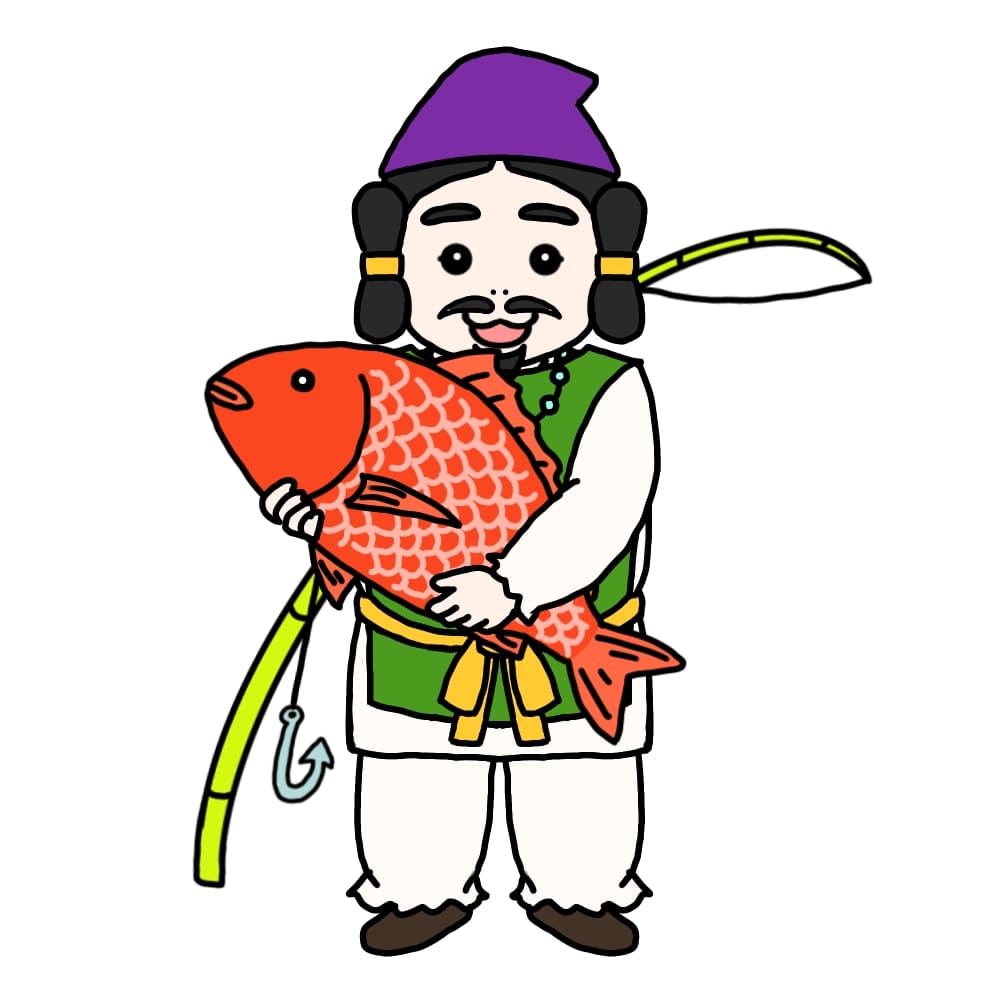
Kotoshironushi-no-Kami’s legacy continues to resonate with modern Japan. As a symbol of abundance, cooperation, and prosperity, the deity’s influence can be seen in festivals, local traditions, and even popular culture.
By understanding the role of Kotoshironushi-no-Kami and his connection to Ebisu, we can gain deeper insight into Japanese spirituality and the enduring importance of mythology in everyday life.
Conclusion
Kotoshironushi-no-Kami is a deity of profound significance in Japanese culture, embodying the values of prosperity, harmony, and abundance. Worshipped as a god of fishing or celebrated as Ebisu during Toka Ebisu festivals, this deity holds a timeless place in the hearts of many.

If you are interested in Japanese culture, you may love these games!
Let’s play!

Yes! Let’s play!

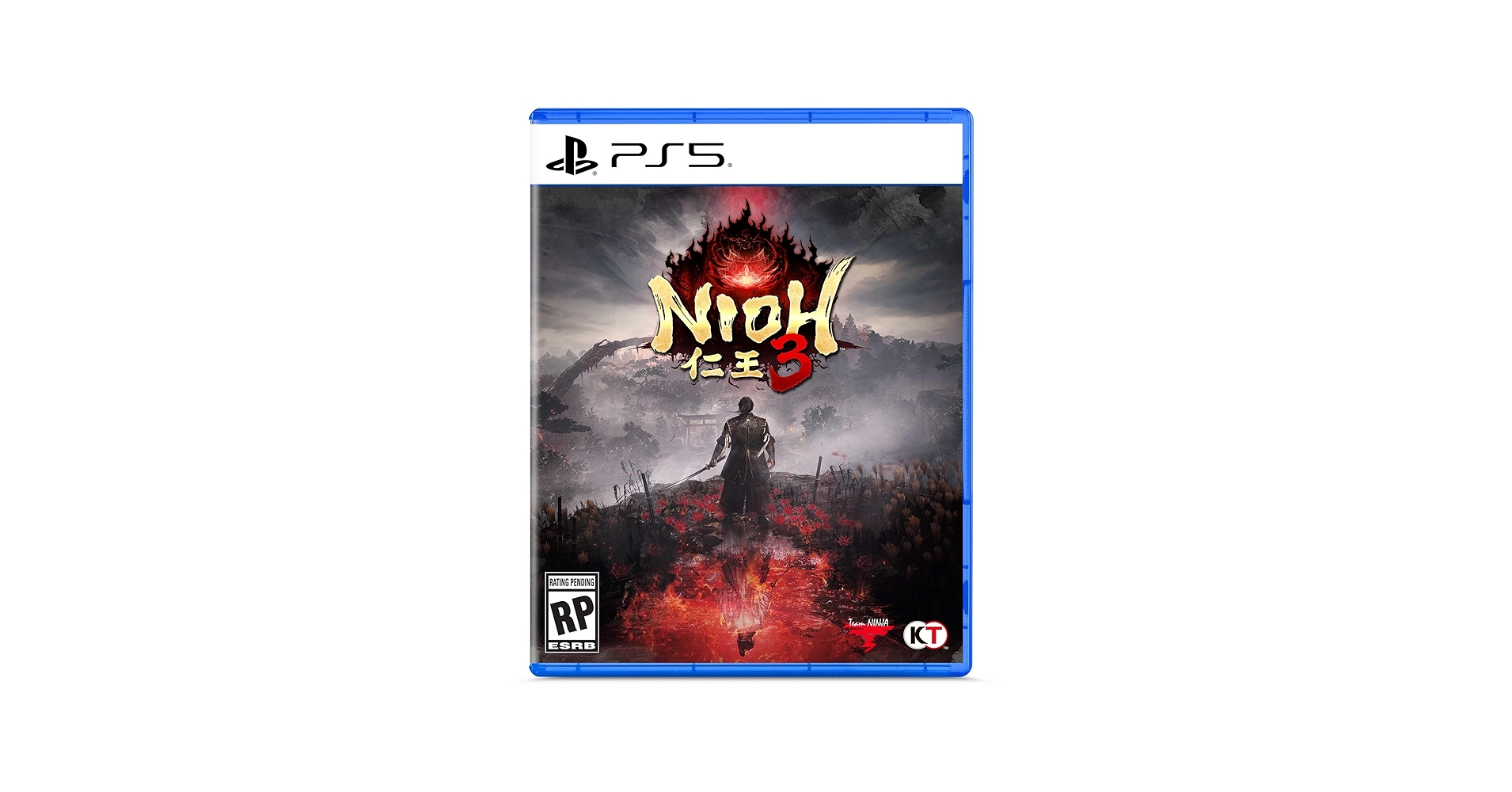



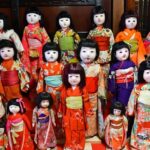
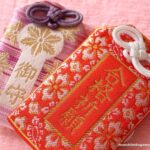
Comments